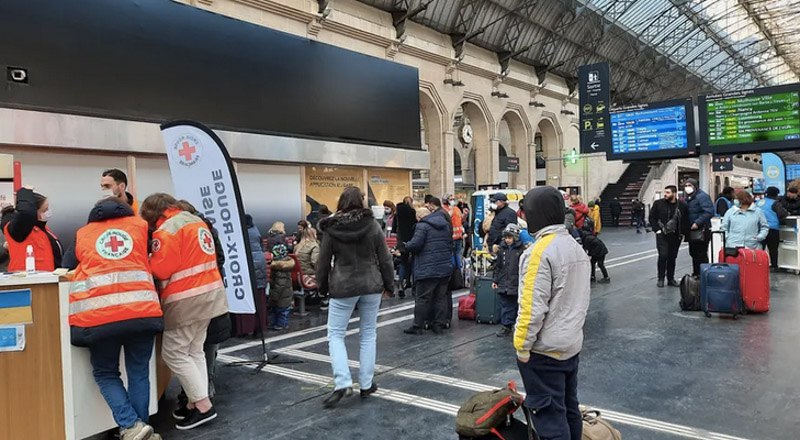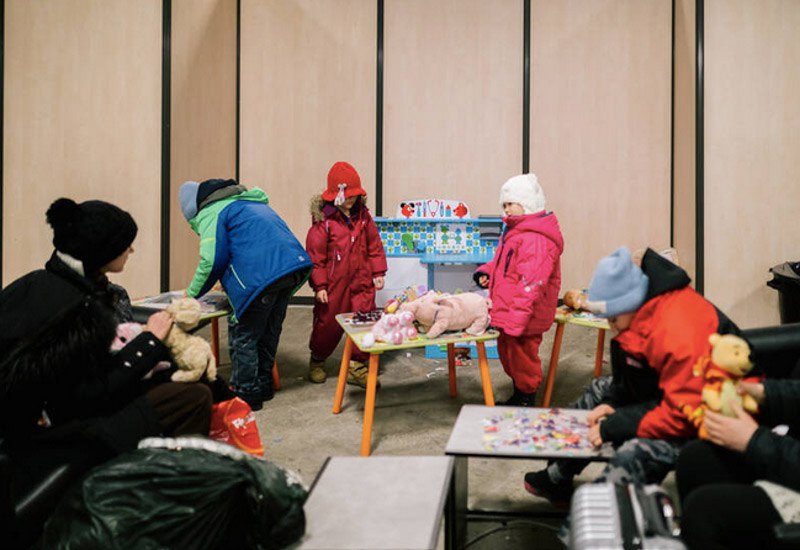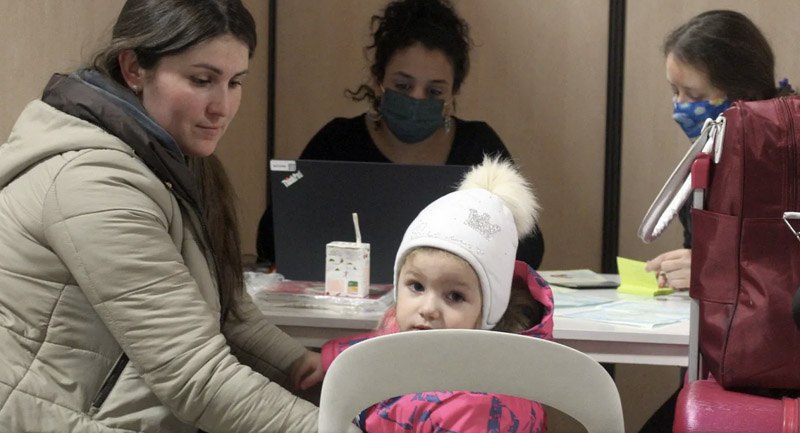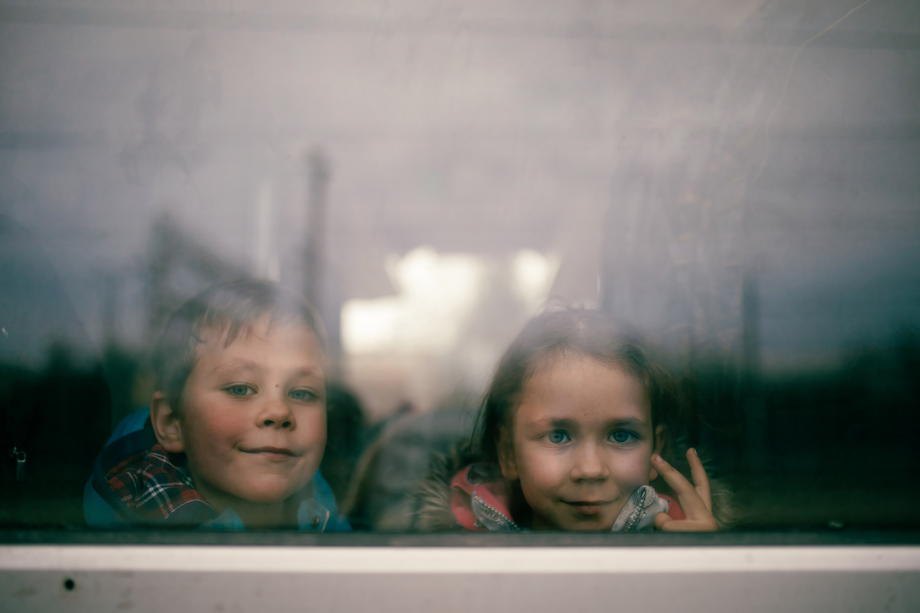
Temporary protection status VS refugee status
About two weeks ago, there were almost no volunteers at the Gare de l’Est (East Station) in Paris, where trains from the eastern directions arrived, and confused conductors did not know what to say to Ukrainians. Now loudspeakers are making announcements there in Ukrainian, and representatives of the Red Cross are on duty at the platforms.
They explain to the newcomers that Ukrainians, who left their country after February 24, automatically acquire the status of “temporarily protected” persons in the EU. What does it mean? This status provides the right to legally live and work in any country of the European Union for a year, with the right to extend this period up to three years (if the security situation in Ukraine does not change). The status provides access to health care and, in some cases, financial assistance (see below).
The status of temporary protection was established in 2001 after the Yugoslav war. It speeds up the provision of asylum to nationals and is much more effective than the classic refugee procedure, which can take months and does not allow people to work during the first six months of their stay in a new country. Another difference is that the status of temporary protection will make Ukrainians eligible to receive free medical care immediately after their registration in France, including the services of psychologists.

6.80 euros per day and free housing
France has opened the largest reception center for Ukrainian refugees in Paris: 5,000 square meters of the pavilions of the Porte de Versailles exhibition center, where one can solve all administrative issues in one visit. However, it may not be possible to get inside immediately: the queues stretch to the entire neighboring area. There are 500 temporary beds in the expo center for those waiting for their turn for housing and having nowhere to spend the night. In the new Paris hub, one can, among other things, get a paper from the French Office for Immigration and Integration (Offi) – an ADA card, which entitles to receive financial assistance of 6.80 euros per day per person (or 14.20 euros in the absence of housing). To do so, applicants must confirm that their income is less than 565 euros per month. More information about additional benefits here.
Non-governmental organizations such as France terre d’asile, which works in the same Parisian expo center, help Ukrainian refugees find housing. Among possible options, there are temporary housing in sanatoriums and recreation centers, communal housing (house or apartment for several families), or private offers from the French. The latter option is becoming increasingly popular. Several specialized groups on Facebook are helping with the same, they can be found here and here. Turning through the numerous pages of publications, one can notice almost no housing offers in the capital. At the same time, France’s central and northern regions lead by the number of French people ready to offer their housing to Ukrainians.

Website with vacancies and 10,000 job offers
The Federation of French Entrepreneurs has pledged to offer 10,000 jobs to Ukrainian refugees by June. About 600 companies across the country will be involved in the initiative. Contracts will include language assistance and supplementary health insurance. Meanwhile, the Franco-Swiss HR company has already launched a website in Ukrainian, where one can find vacancies.
Some regions have announced their own initiatives to help Ukrainian refugees. In Bretagne, AJI Environnement and Alter are ready to provide 60 temporary contracts for Ukrainians to care for gardens and parks. In the south of France, Eurêka intérim is looking for Ukrainians for construction and agricultural work.
Non-governmental organizations such as France Terre d’Asile, the City Halls, and the Office of Immigration and Integration offer Free French lessons for Ukrainian refugees.
800 Ukrainian children are already in French schools
The most organized component of the French refugee reception system is likely the integration of children. Education is compulsory in the country from the age of 3. It also applies to students who do not speak French; they are temporarily sent to a special class with 18 hours of French a week. According to the latest data, about 800 Ukrainian children have been admitted to French schools since the war started. In one of the reports on French television, teachers enthusiastically talk about the high level of knowledge of mathematics in Ukrainians.
Public kindergartens and schools in France are free. In order to enroll in them, one needs to contact the city hall of the area where the family plans to stay. Detailed information in Ukrainian can be found here; on other administrative procedures in Ukrainian here.









